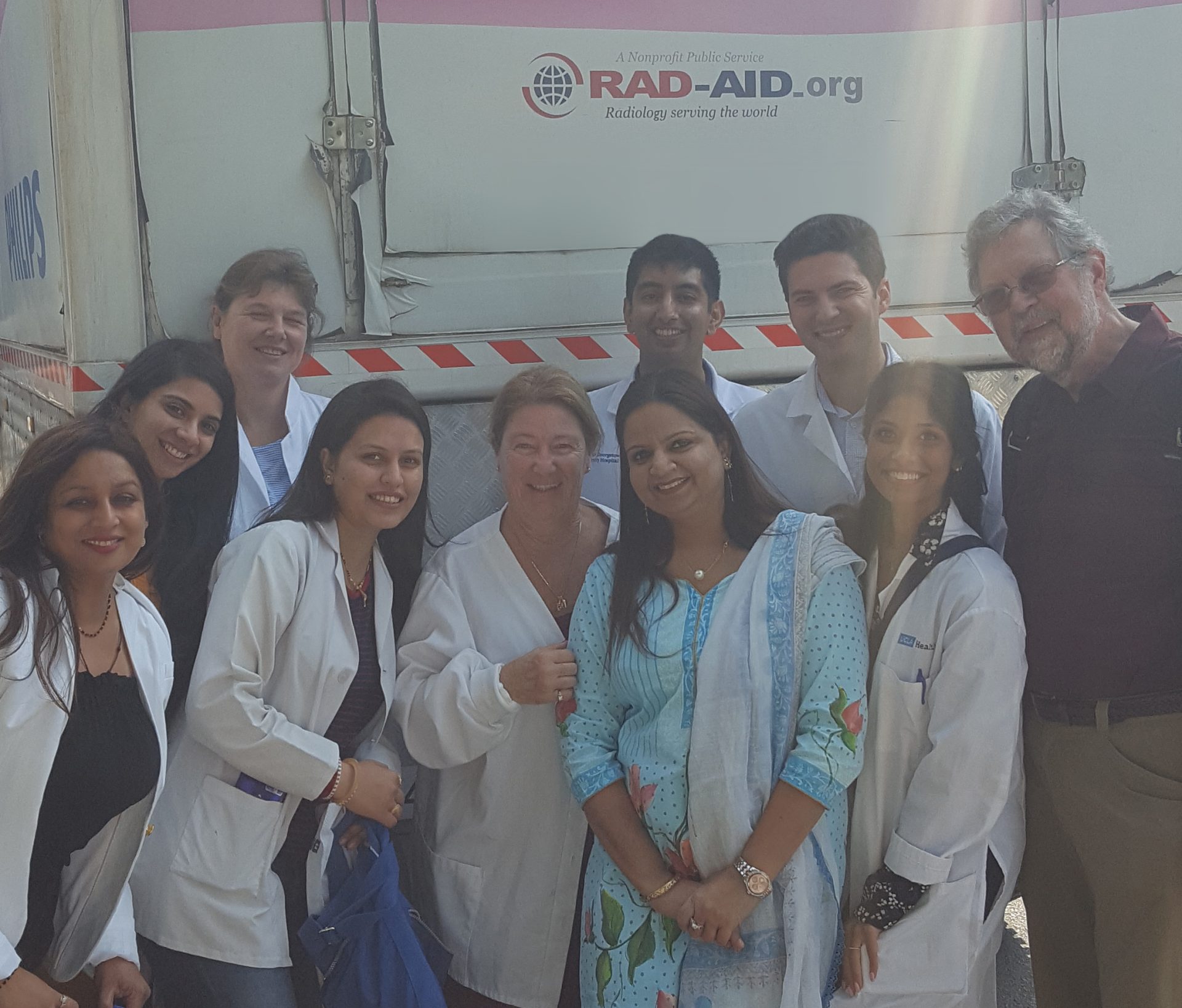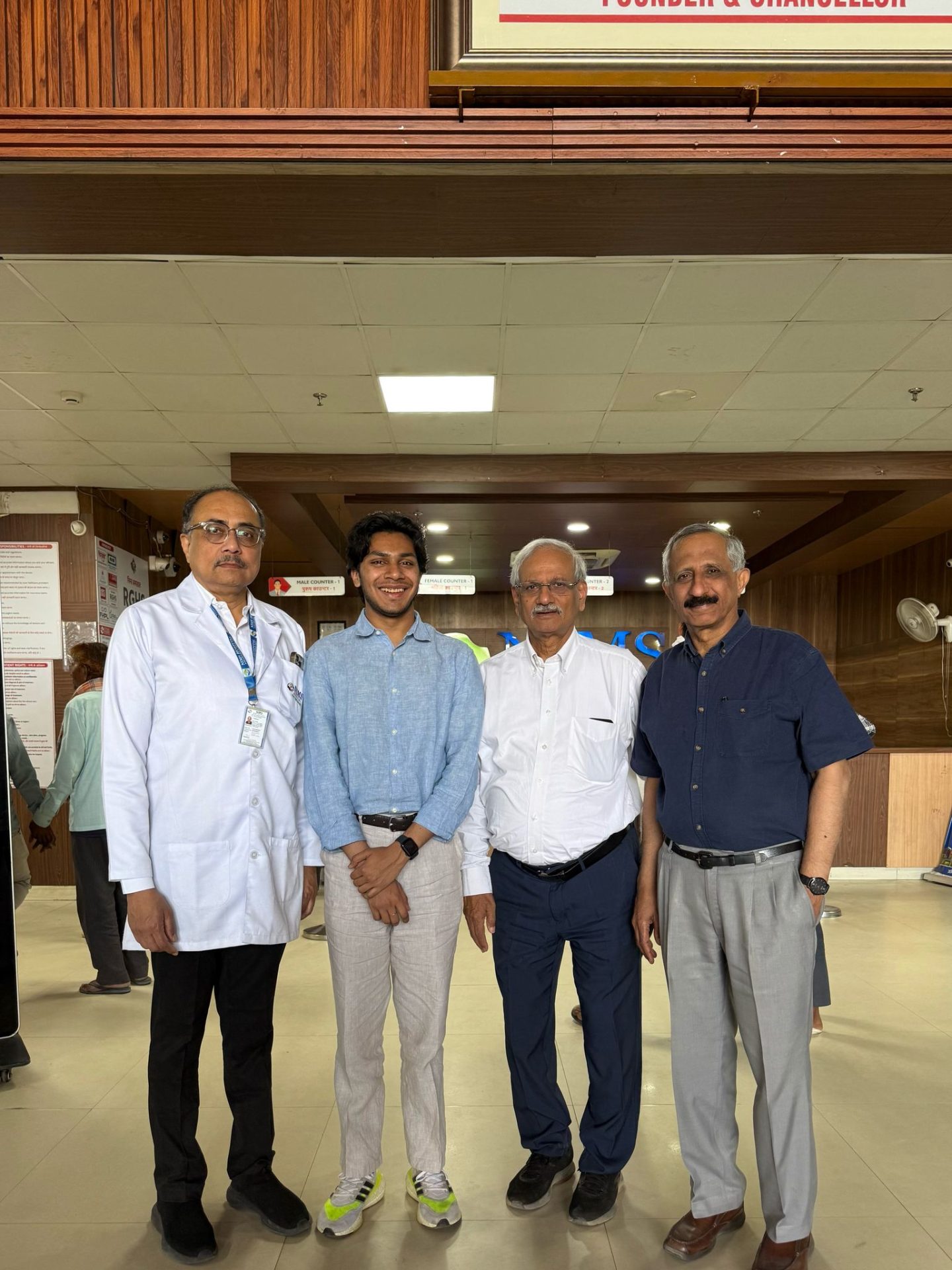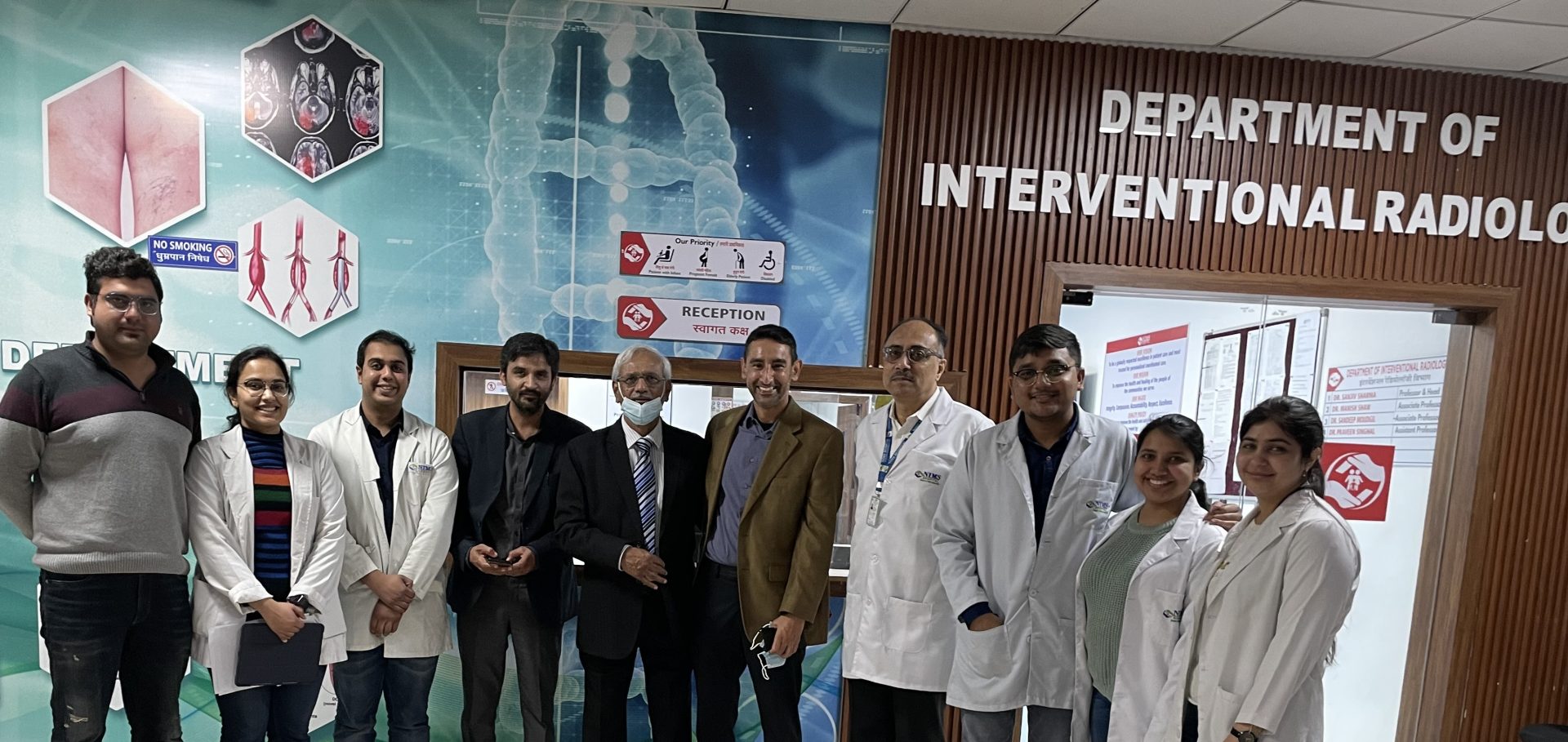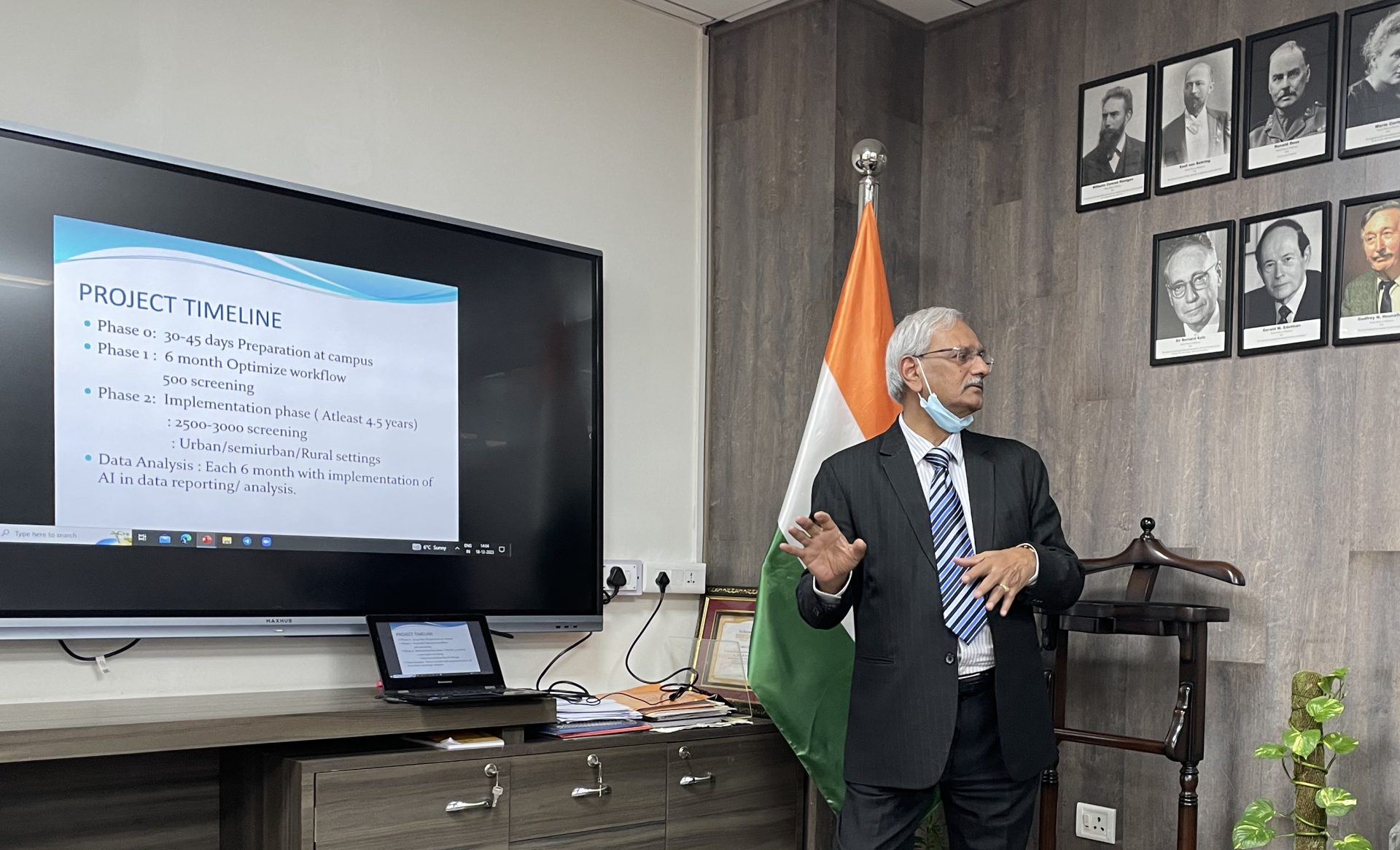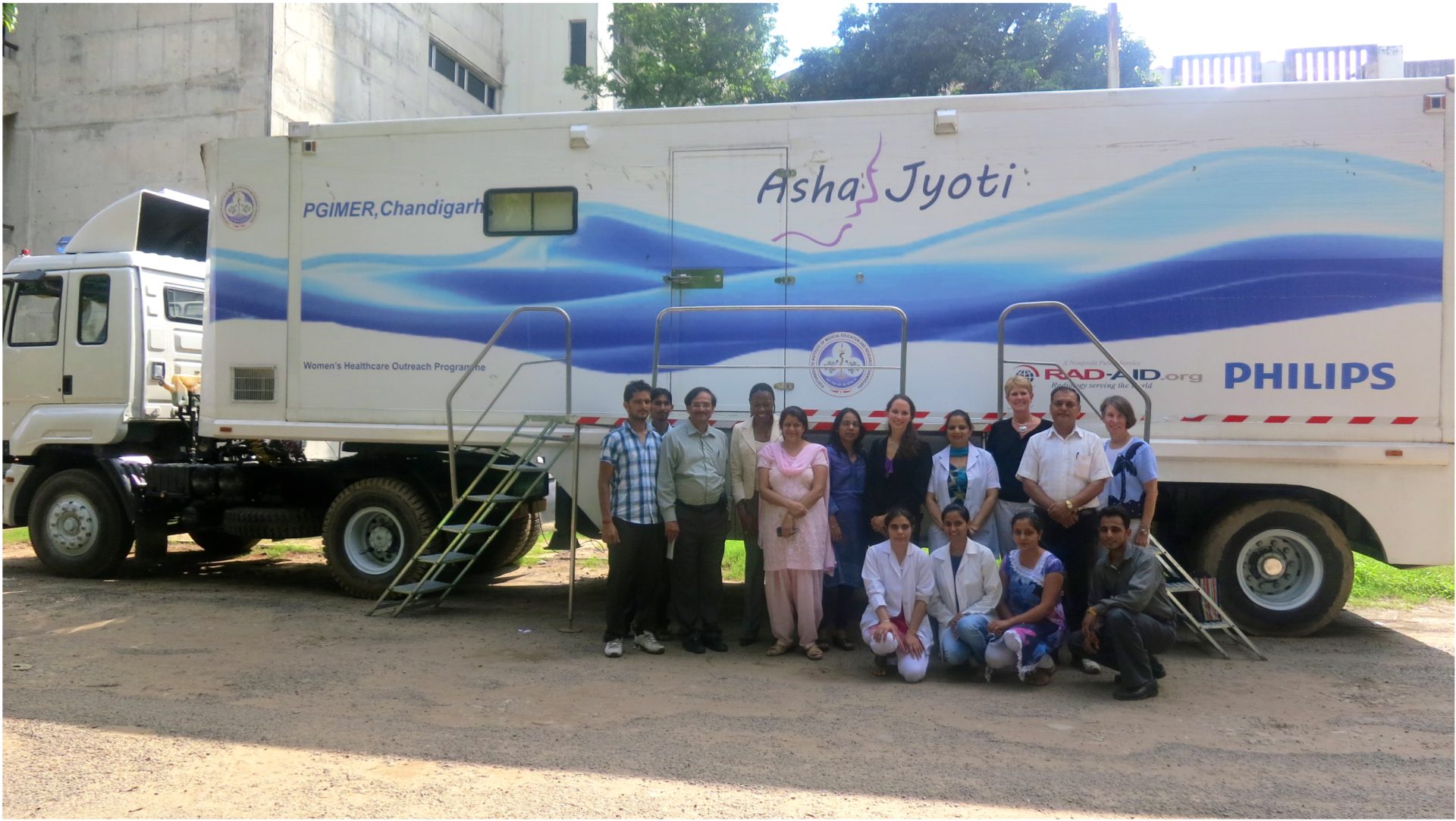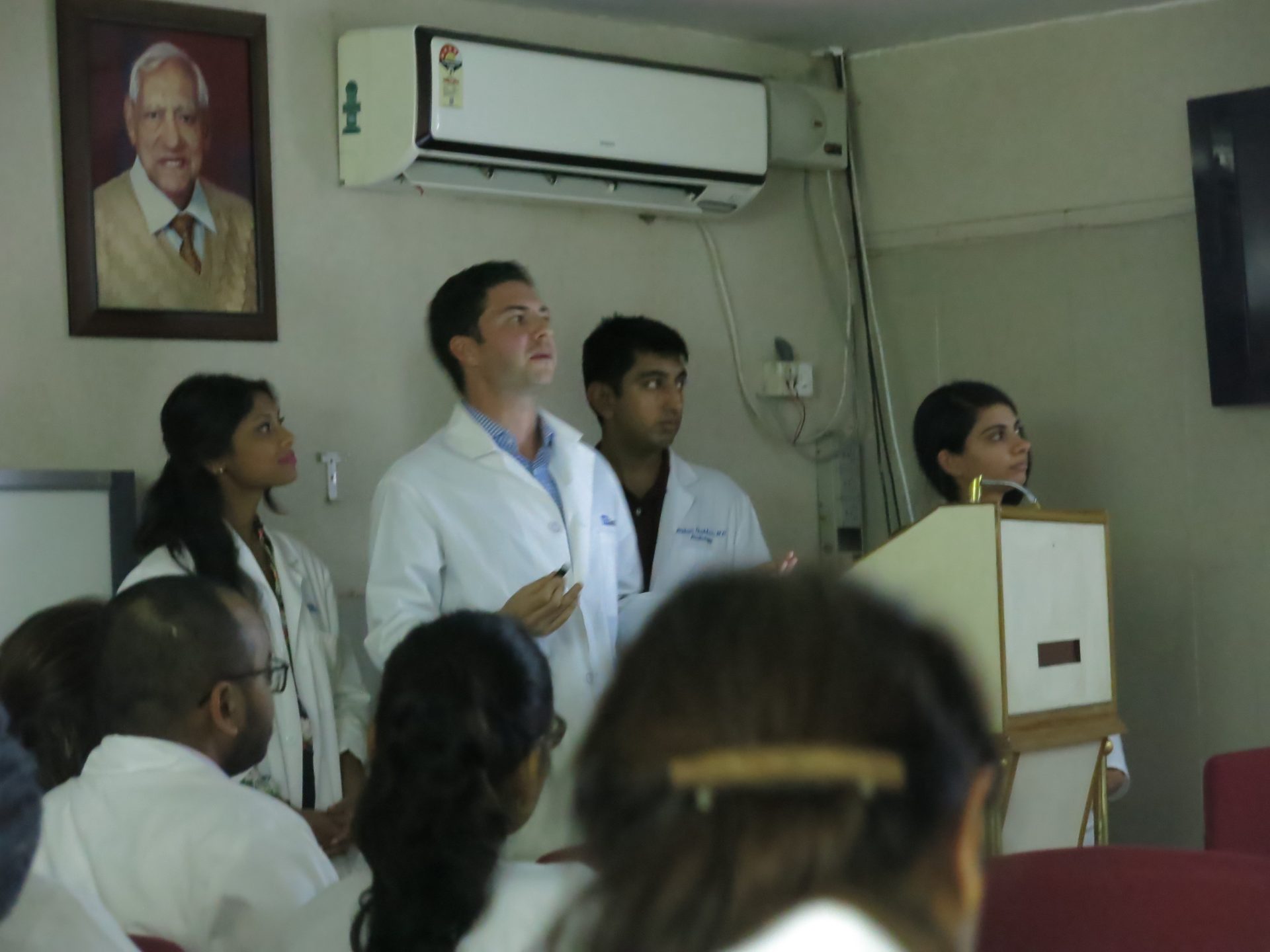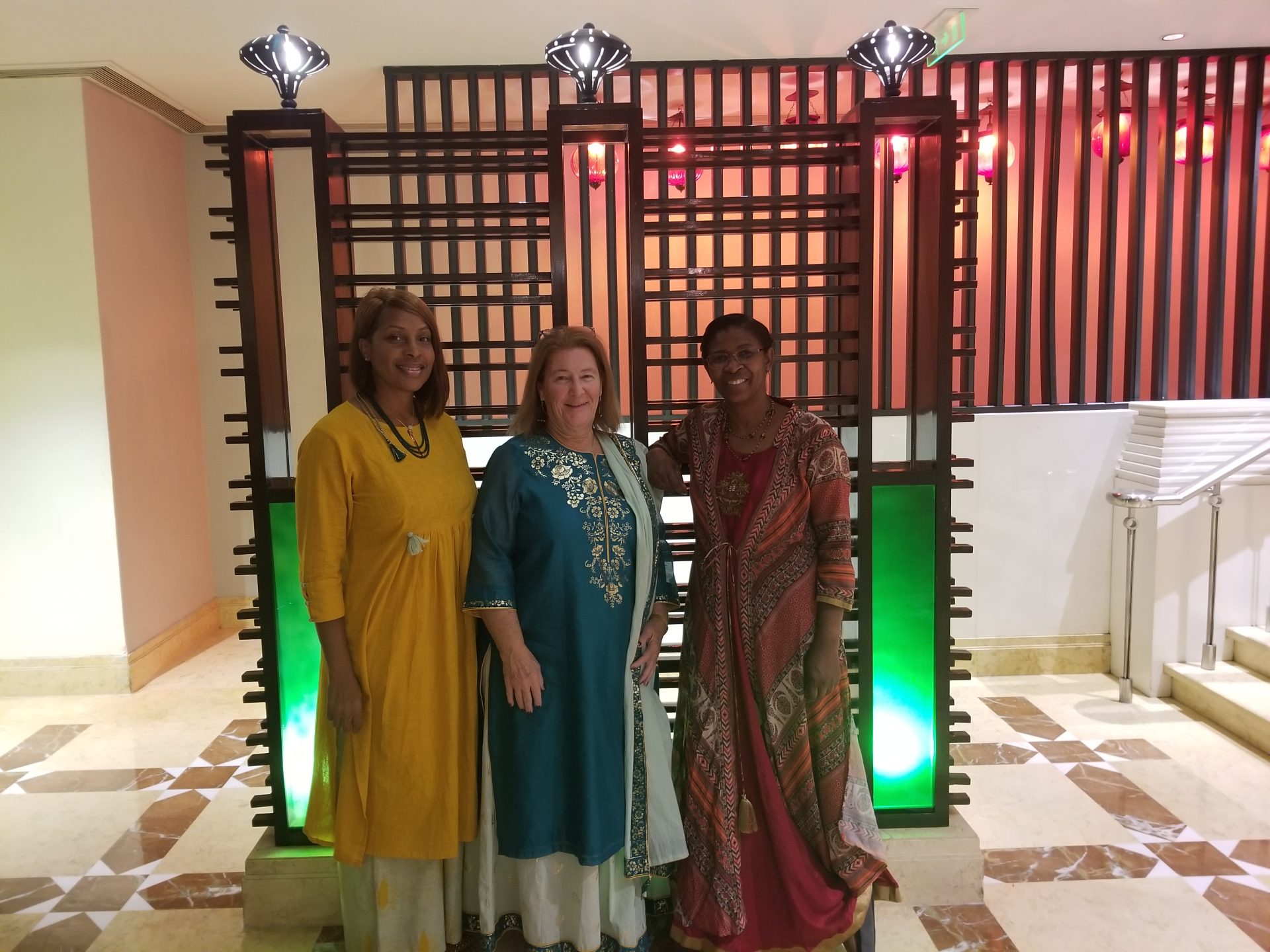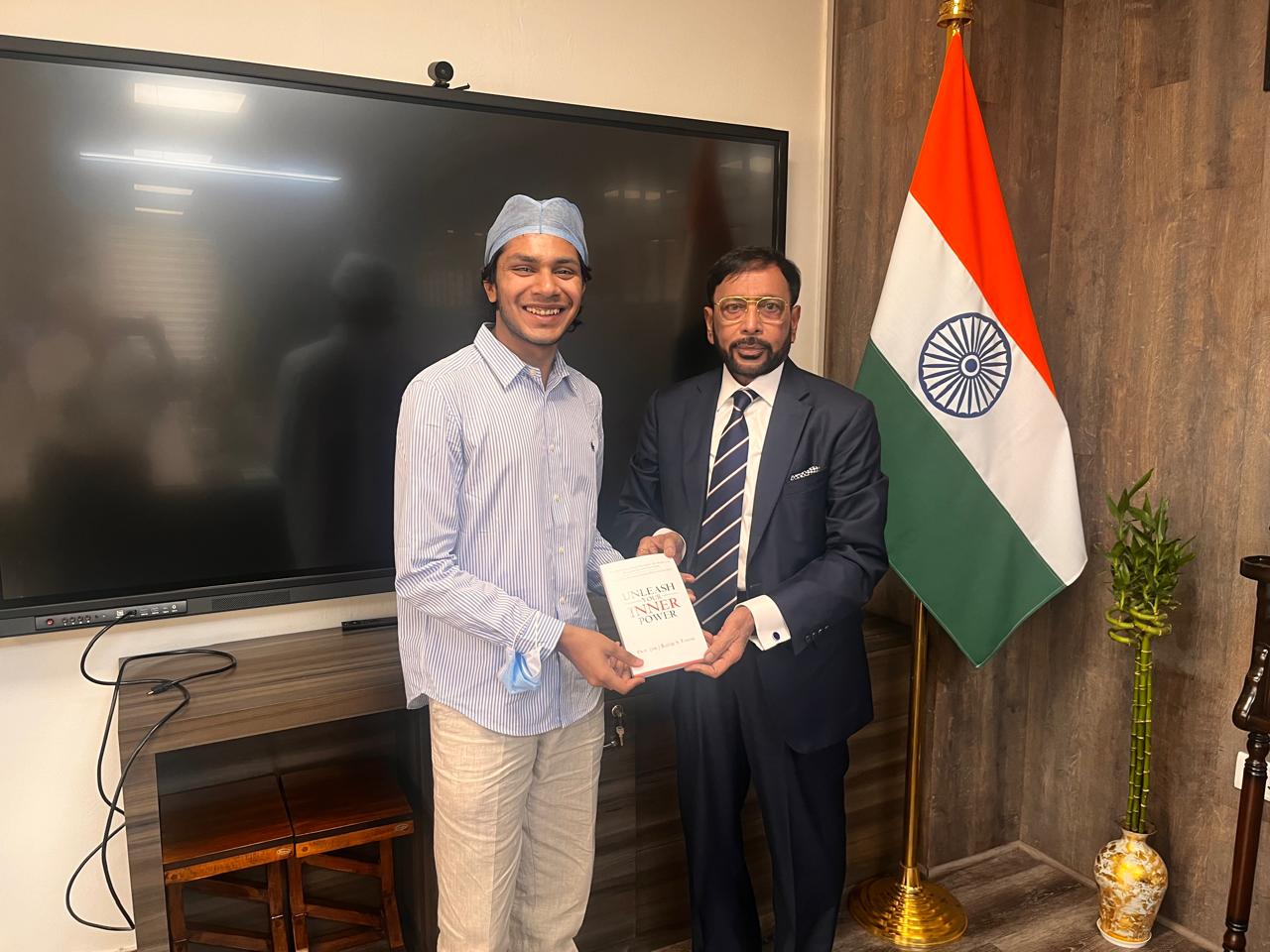Current Initiatives
From 2012-2020, RAD-AID supported Asha Jyoti (photo below) for mobile women’s health in Northern India. In that time, we helped over 20,000 women access mammography, bone densitometry (for osteoporosis) and cervical cancer screening, in collaboration with Post Graduate Institute of Medical Education and Research (PGIMER) of Chandigarh.
In 2022, RAD-AID worked with partners to provide remote education in women’s imaging. In 2023, RAD-AID volunteers visited on-site to resume development of radiology outreach for underserved populations in Northern India, and to expand on-premise training for mammography technologists.
In 2024, RAD-AID partnered with NIMS University Rajasthan in Jaipur to launch Asha Jyoti 2 to expand mobile health with AI, chest-radiography for respiratory infections, mammography, and cervical cancer screening. The health vehicle for Asha Jyoti 2 is currently under construction (photo below), which we expect to launch and operate in Q3 2025.

